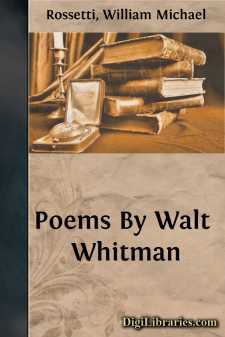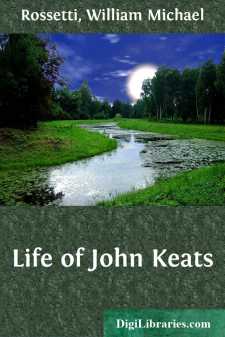Categories
- Antiques & Collectibles 13
- Architecture 36
- Art 48
- Bibles 22
- Biography & Autobiography 813
- Body, Mind & Spirit 142
- Business & Economics 28
- Children's Books 16
- Children's Fiction 13
- Computers 4
- Cooking 94
- Crafts & Hobbies 4
- Drama 346
- Education 46
- Family & Relationships 57
- Fiction 11829
- Games 19
- Gardening 17
- Health & Fitness 34
- History 1377
- House & Home 1
- Humor 147
- Juvenile Fiction 1873
- Juvenile Nonfiction 202
- Language Arts & Disciplines 88
- Law 16
- Literary Collections 686
- Literary Criticism 179
- Mathematics 13
- Medical 41
- Music 40
- Nature 179
- Non-Classifiable 1768
- Performing Arts 7
- Periodicals 1453
- Philosophy 64
- Photography 2
- Poetry 896
- Political Science 203
- Psychology 42
- Reference 154
- Religion 513
- Science 126
- Self-Help 84
- Social Science 81
- Sports & Recreation 34
- Study Aids 3
- Technology & Engineering 59
- Transportation 23
- Travel 463
- True Crime 29
Poems By Walt Whitman
Description:
Excerpt
During the summer of 1867 I had the opportunity (which I had often wished for) of expressing in print my estimate and admiration of the works of the American poet Walt Whitman.[1] Like a stone dropped into a pond, an article of that sort may spread out its concentric circles of consequences. One of these is the invitation which I have received to edit a selection from Whitman's writings; virtually the first sample of his work ever published in England, and offering the first tolerably fair chance he has had of making his way with English readers on his own showing. Hitherto, such readers—except the small percentage of them to whom it has happened to come across the poems in some one of their American editions—have picked acquaintance with them only through the medium of newspaper extracts and criticisms, mostly short-sighted, sneering, and depreciatory, and rather intercepting than forwarding the candid construction which people might be willing to put upon the poems, alike in their beauties and their aberrations. Some English critics, no doubt, have been more discerning—as W. J. Fox, of old, in the Dispatch, the writer of the notice in the Leader, and of late two in the Pall Mall Gazette and the London Review;[2] but these have been the exceptions among us, the great majority of the reviewers presenting that happy and familiar critical combination— scurrility and superciliousness.
[Footnote 1: See The Chronicle for 6th July 1867, article Walt Whitman's
Poems.]
[Footnote 2: Since this Prefatory Notice was written [in 1868], another eulogistic review of Whitman has appeared—that by Mr. Robert Buchanan, in the Broadway.]
As it was my lot to set down so recently several of the considerations which seem to me most essential and most obvious in regard to Whitman's writings, I can scarcely now recur to the subject without either repeating something of what I then said, or else leaving unstated some points of principal importance. I shall therefore adopt the simplest course—that of summarising the critical remarks in my former article; after which, I shall leave without further development (ample as is the amount of development most of them would claim) the particular topics there glanced at, and shall proceed to some other phases of the subject.
Whitman republished in 1867 his complete poetical works in one moderate- sized volume, consisting of the whole Leaves of Grass, with a sort of supplement thereto named Songs before Parting,[3] and of the Drum Taps, with its Sequel. It has been intimated that he does not expect to write any more poems, unless it might be in expression of the religious side of man's nature. However, one poem on the last American harvest sown and reaped by those who had been soldiers in the great war, has already appeared since the volume in question, and has been republished in England.
[Footnote 3: In a copy of the book revised by Whitman himself, which we have seen, this title is modified into Songs of Parting.]
Whitman's poems present no trace of rhyme, save in a couple or so of chance instances. Parts of them, indeed, may be regarded as a warp of prose amid the weft of poetry, such as Shakespeare furnishes the precedent for in drama. Still there is a very powerful and majestic rhythmical sense throughout.
Lavish and persistent has been the abuse poured forth upon Whitman by his own countrymen; the tricklings of the British press give but a moderate idea of it. The poet is known to repay scorn with scorn. Emerson can, however, from the first be claimed as on Whitman's side; nor, it is understood after some inquiry, has that great thinker since then retreated from this position in fundamentals, although his admiration may have entailed some worry upon him, and reports of his recantation have been rife. Of other writers on Whitman's side, expressing themselves with no measured enthusiasm, one may cite Mr. M. D. Conway; Mr. W. D. O'Connor, who wrote a pamphlet named The Good Grey Poet; and Mr. John Burroughs, author of Walt Whitman as Poet and Person, published quite recently in New York. His thorough-paced admirers declare Whitman to be beyond rivalry the poet of the epoch; an estimate which, startling as it will sound at the first, may nevertheless be upheld, on the grounds that Whitman is beyond all his competitors a man of the period, one of audacious personal ascendant, incapable of all compromise, and an initiator in the scheme and form of his works....



